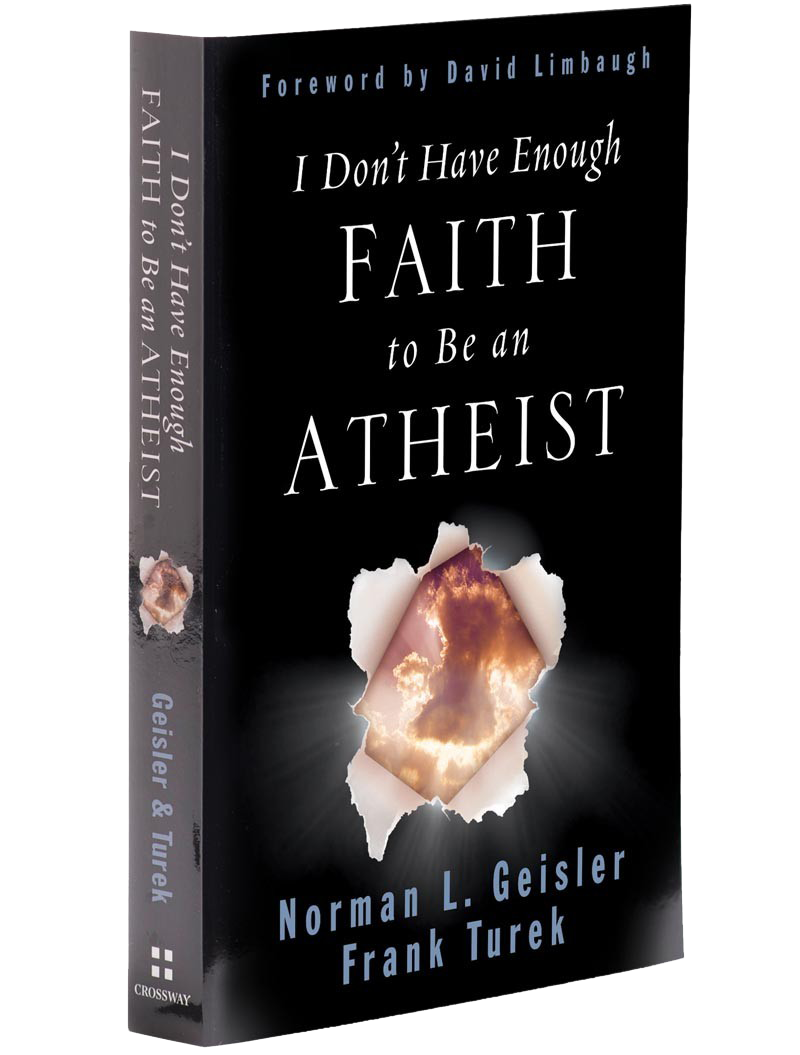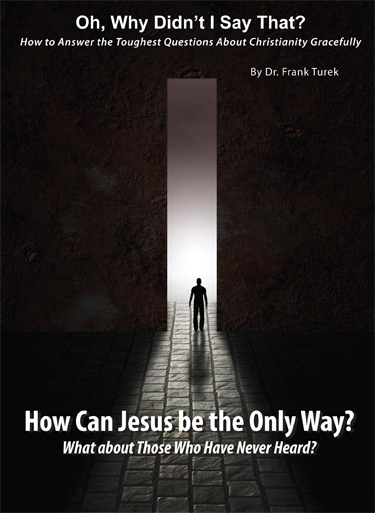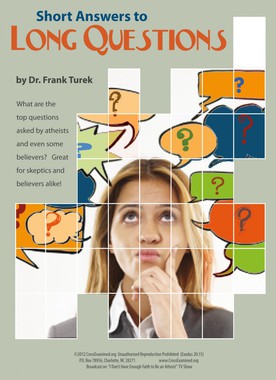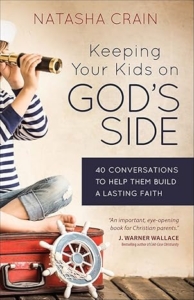By Tim Stratton
“It’s impossible for God to interact in the physical world. For example, say we have a material object and God wants to move it. Newton made it clear: every action has an equal and opposite reaction. Therefore, since God is an immaterial being He could never cause anything to happen or occur in the material/physical universe. Therefore, miracles are impossible!”
Mr. Skeptic
I spend much of my time arguing against naturalism; specifically against the idea that only the physical universe exists. This is accomplished by utilizing logical arguments reaching deductive conclusions that demonstrate the existence of both God and the human soul. Many times the best discoveries in modern science support premises in these deductive arguments reaching supernatural conclusions.
One of the most common objections I receive on the internet is known as the interaction objection. I previously wrote an article regarding this specific kind of objection in regards to the human soul [1]. The objection above is quite similar, but specifically against the idea of God not only being able to create the universe, but especially to act in it (miracles).
One of my lecturing professors at Biola University was the eminent philosopher, JP Moreland. I chose to attend Biola University basically for two reasons: William Lane Craig and JP Moreland. Not long ago my wife and I had the privilege of having dinner with JP Moreland. I learned more that night than from any class lecture. We discussed many things that evening and this topic of God interacting in the world was included. Based on that conversation, I believe that the objection above fails for at least three reasons.
Empirical Observations & Metaphysical Principles
First of all, Newton’s 3rd law is not a metaphysical principle; rather, it is an empirical one. The problem here is that one cannot logically derive metaphysical principles from mere empirical observations. Moreland said, “Any freshman philosophy student should know that you cannot derive deep modal or metaphysical conclusions from empirical laws.”
Empirical laws or observations merely tell us what is true in this world — nothing more. You might grant that empirical laws tell us what is true in all relevantly similar worlds that are physical worlds, but they do not tell you what must be true in this world. That is to say, you cannot derive deep modal conclusions (what is possible or impossible in any world) from empirical laws because empirical laws are too thin of a basis to support this kind of overreaching generalization.
Knowledge & Conceivability
The second problem with this objection is that modal judgments are known a priori (from the earlier) as opposed to a posteriori (from the latter). We know about necessity and possibility a priori. We know about physics from experience via the scientific method. This is a posterioriknowledge. Newton’s 3rd law might be physically necessary, but this is not metaphysically necessary. There is simply no evidence for that because those kinds of statements are known a priori.
The best epistemic test for a priori knowledge is conceivability. Moreland said that one “might not like this, but it’s about all we’ve got!” If something is conceivable, then it is possible; if something is inconceivable, then it is impossible. This is a defeasible criterion of knowledge. This is not with Cartesian certainty by any means, but nevertheless, it is defeasible.
Moreland offered a great example:
The reason I think it is metaphysically possible for little green men to exist on the surface of Mars is not because I’ve been there to check it out, but because I can conceive of little green men on the surface of Mars. With that said, however, I cannot conceive of married bachelors in Montana. Therefore, I don’t even need to make the trip to check it out because I know this is impossible.
The Problem of Proving Too Much
Finally, the third problem with this objection is that if this objection is right, then it proves too much as it also rules out human libertarian free will. If an immaterial substance cannot interact in the material world, then the same problem God supposedly has is also a major problem for human beings. That is to say, if God cannot act on matter, then neither can a human soul.
Every time a human makes a free choice (which include both moral or rational decisions) we are performing (for lack of a better term) “mini miracles.” Because humans are immaterial souls with material bodies, we have the ability to intervene in and override the laws of nature. This ability gives us a respons-ABILITY to not behave as mere animals.
Libertarianism (libertarian free will) is the opposite of compatibilism (compatibilism is a form of determinism). Libertarianism states that when one acts freely, then nothing else causally determined that thought or action. It was “up to you” completely. This is not to say that we have libertarian freedom in all things, or that we cannot be influenced by other things, but influence and causal determinism are two different kinds of things. When humans freely think, then we can make rational choices and decisions. When humans act freely, we generate motion in the universe from the available energy to use, or not to use.
Consider when I choose to raise my arm, nothing causally determined my arm to rise but me; not the prior states of my brain. If my arm is caused to move by the state of the brain, then there is a causal link between the brain state and what determined my brain to exist in the specific state (which is not up to me if naturalism is true). This can go on and on back to the initial conditions of the big bang (which is another example of a physical thing being caused by a non-physical or immaterial substance).
Moreland said,
Behind each chain of events, if there is libertarian freedom, is a first mover — me! I might choose to exercise my power and that might cause a nervous system event to go down and raise my arm — I don’t have any problem with that — but at the back of that sucker is me interacting with matter!
This means that the objector proves too much! If this objection is right, then libertarian free will is impossible, and if there is no libertarian free will, then rationality is not just false, but impossible. That is to say, if there is no free will, then there is no freethinking! However, isn’t the objector claiming to make a rational objection? If so, then his argument is self-defeating!
Bottom line: We have scientific, philosophical, and historical justification to believe in miracles. Moreover, the interaction objection fails as a defeater for this justified belief for the three reasons listed above. Therefore, given the three reasons to believe in miracles and the three reasons to reject the objection to miracles, it is perfectly rational to state, “I believe in miracles!”
Stay reasonable (Philippians 4:5),
Tim Stratton (Visit Tim’s Website @ FreeThinkingMinistries.com)
NOTES
[1] In a previous article I demonstrated that it is impossible to doubt the existence of your mind, but there is some scientific reason to doubt the existence of your brain. It follows that if one really thinks that it is impossible for an immaterial mind (God or the human soul) to interact with the physical universe, then they ought to become a theistic idealist and reject matter before rejecting mind. One way or the other, naturalism/physicalism is false. Mind is fundamental and ultimate reality.
Resources For Greater Impact:


 TWO MIRACLES YOU TAKE WITH YOU EVERYWHERE YOU GO
TWO MIRACLES YOU TAKE WITH YOU EVERYWHERE YOU GO 
 OT God vs. NT God
OT God vs. NT God


 http://bit.ly/IDHEFTBAA_IA
http://bit.ly/IDHEFTBAA_IA http://bit.ly/2auZckZ
http://bit.ly/2auZckZ





 http://bit.ly/2aToY22
http://bit.ly/2aToY22 http://bit.ly/2aTpHQF
http://bit.ly/2aTpHQF


 http://bit.ly/2aNSVjW
http://bit.ly/2aNSVjW

